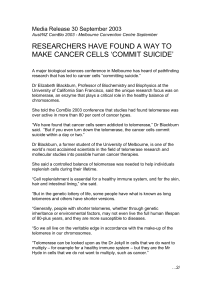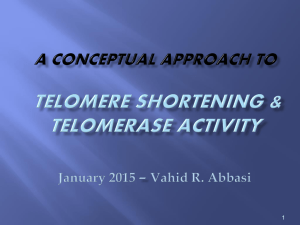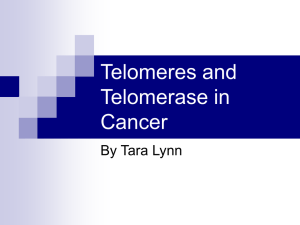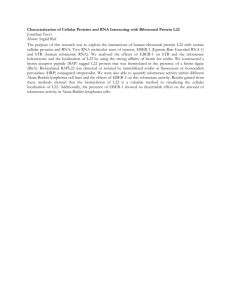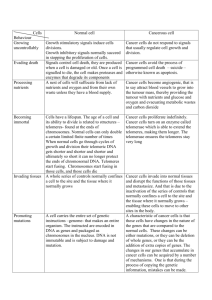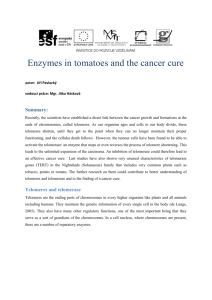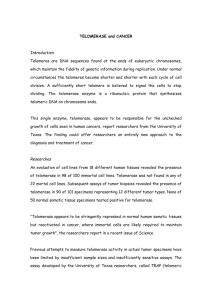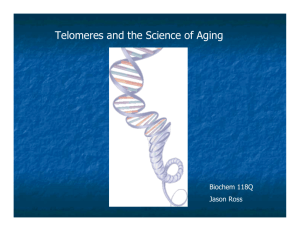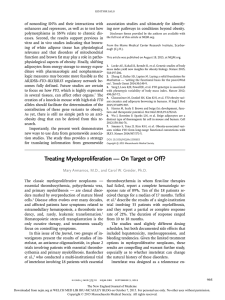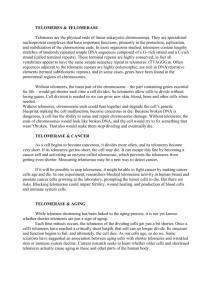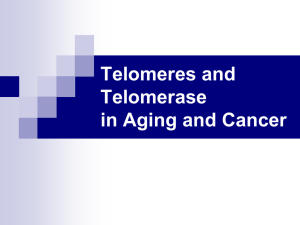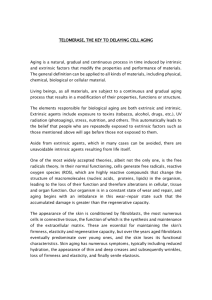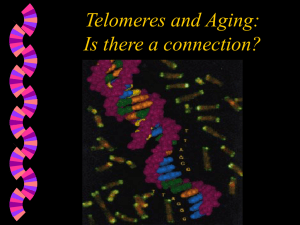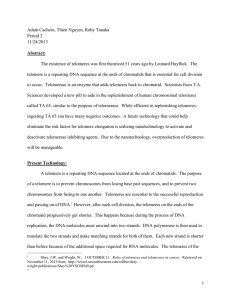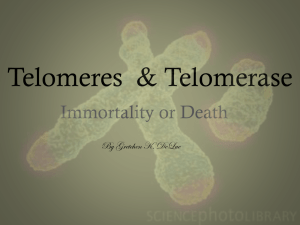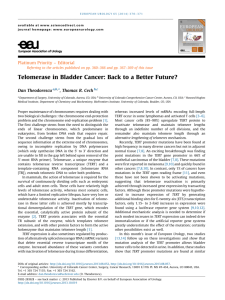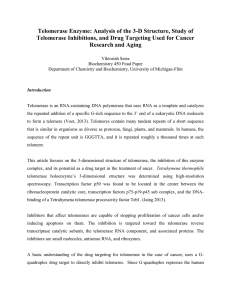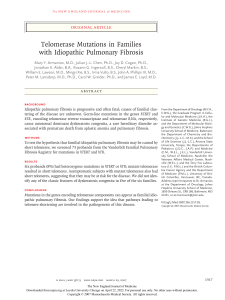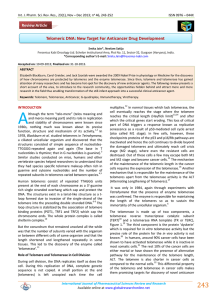Award ID: RP120307 Project Title: Factors Influencing Telomerase
advertisement
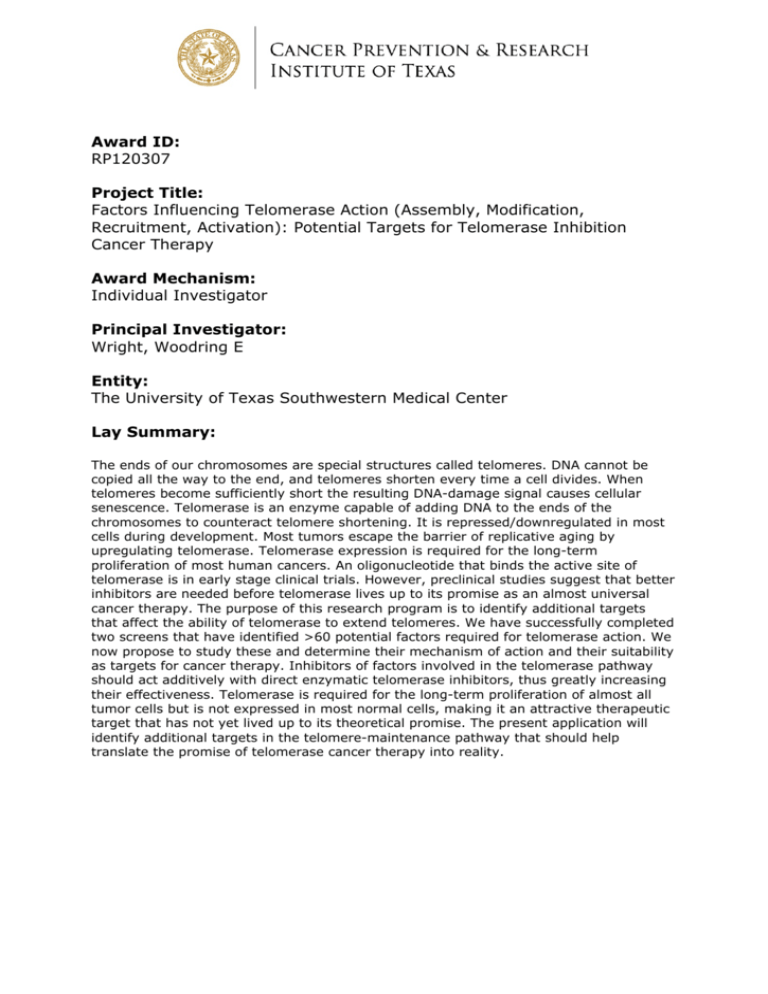
Award ID: RP120307 Project Title: Factors Influencing Telomerase Action (Assembly, Modification, Recruitment, Activation): Potential Targets for Telomerase Inhibition Cancer Therapy Award Mechanism: Individual Investigator Principal Investigator: Wright, Woodring E Entity: The University of Texas Southwestern Medical Center Lay Summary: The ends of our chromosomes are special structures called telomeres. DNA cannot be copied all the way to the end, and telomeres shorten every time a cell divides. When telomeres become sufficiently short the resulting DNA-damage signal causes cellular senescence. Telomerase is an enzyme capable of adding DNA to the ends of the chromosomes to counteract telomere shortening. It is repressed/downregulated in most cells during development. Most tumors escape the barrier of replicative aging by upregulating telomerase. Telomerase expression is required for the long-term proliferation of most human cancers. An oligonucleotide that binds the active site of telomerase is in early stage clinical trials. However, preclinical studies suggest that better inhibitors are needed before telomerase lives up to its promise as an almost universal cancer therapy. The purpose of this research program is to identify additional targets that affect the ability of telomerase to extend telomeres. We have successfully completed two screens that have identified >60 potential factors required for telomerase action. We now propose to study these and determine their mechanism of action and their suitability as targets for cancer therapy. Inhibitors of factors involved in the telomerase pathway should act additively with direct enzymatic telomerase inhibitors, thus greatly increasing their effectiveness. Telomerase is required for the long-term proliferation of almost all tumor cells but is not expressed in most normal cells, making it an attractive therapeutic target that has not yet lived up to its theoretical promise. The present application will identify additional targets in the telomere-maintenance pathway that should help translate the promise of telomerase cancer therapy into reality.
